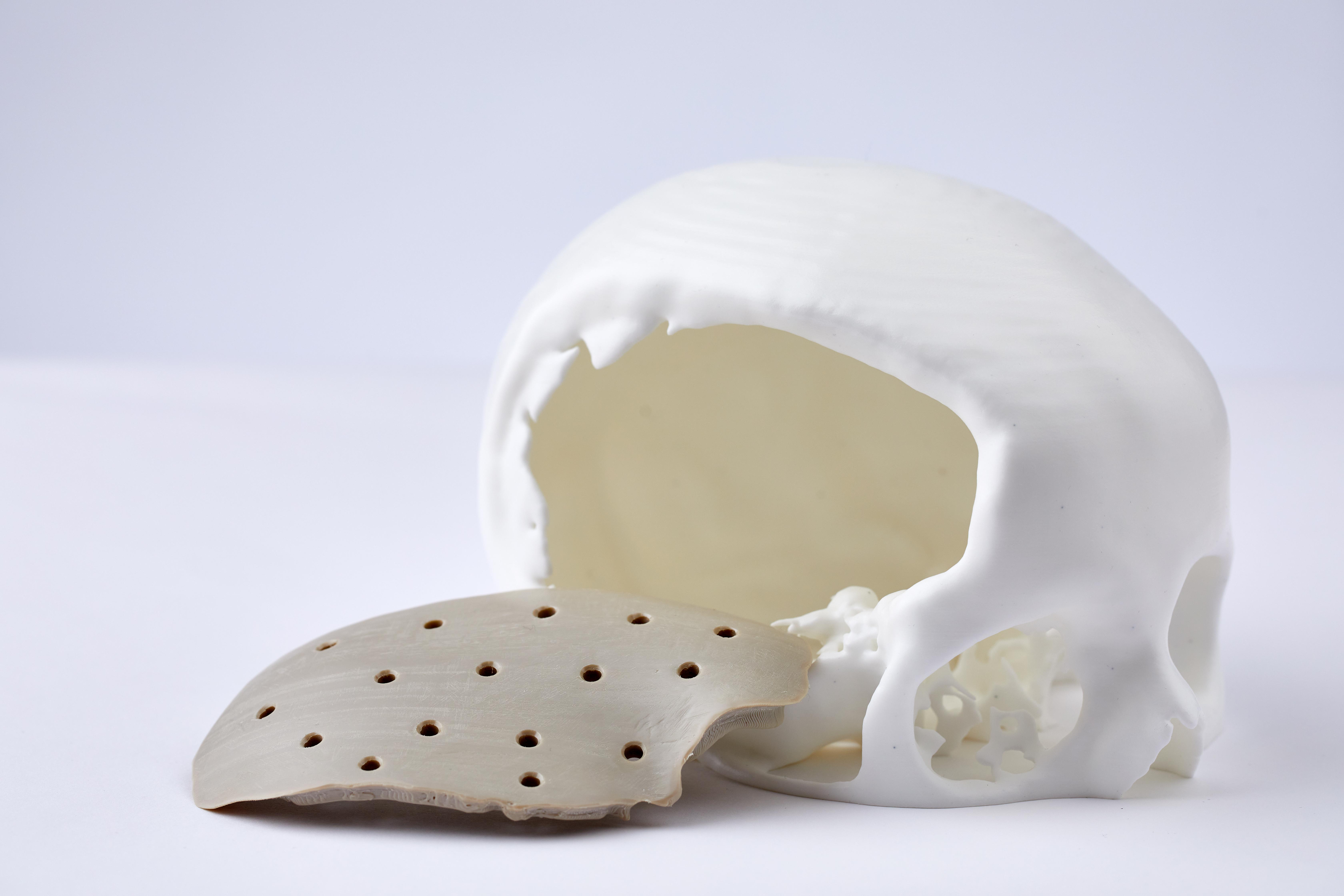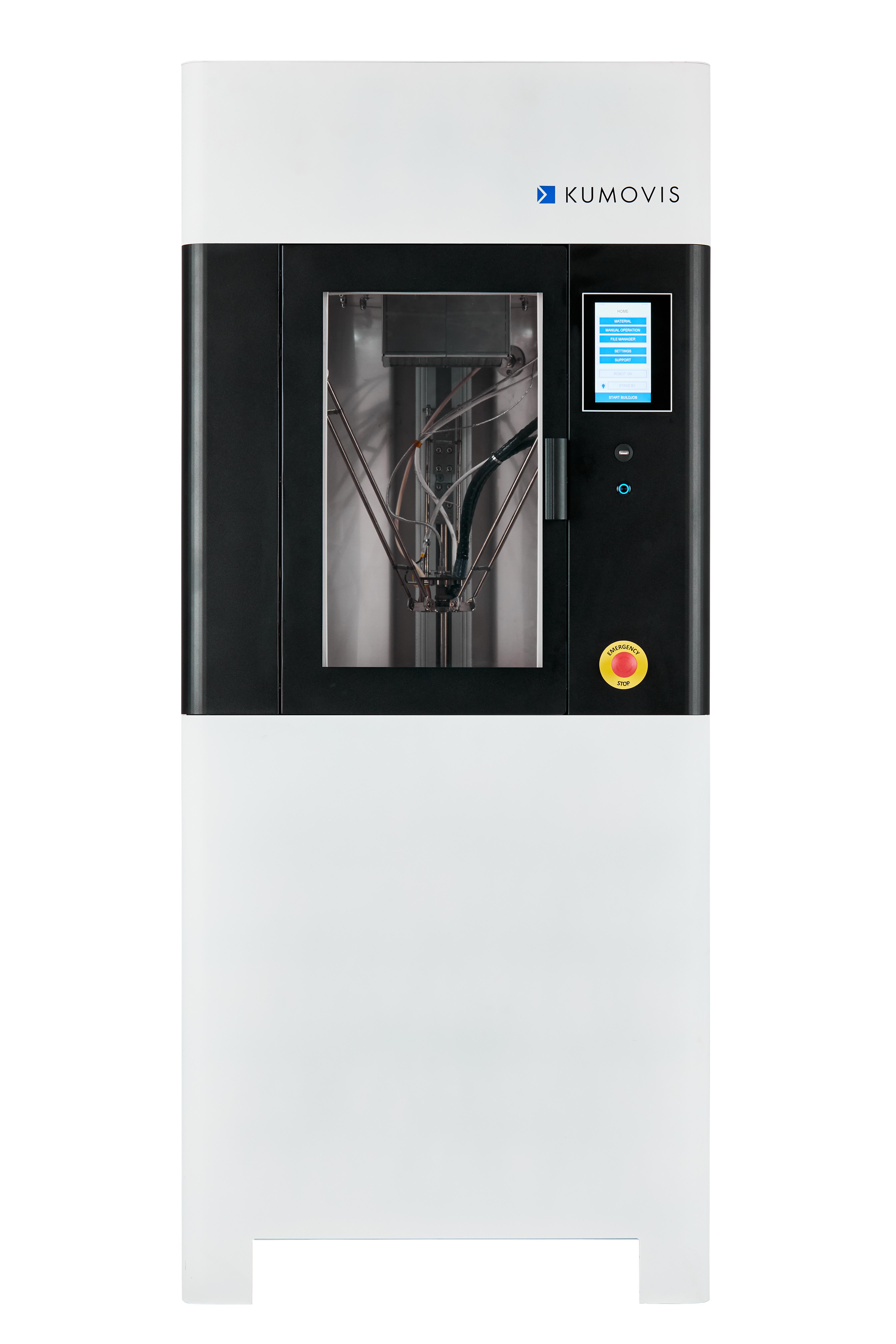Kumovis, a German medical 3D printing startup, has announced that it has raised €3.6 million in a Series A funding round.
The round was led by two additional partners in Renolit SE, the manufacturer of thermoplastic films, and Solvay Ventures, the Venture Capital fund of Belgian chemical company Solvay. Stéphane Roussel, Managing Director of Solvay Ventures, commented: “Its impressive team, its product quality and performance attributes give us confidence that Kumovis is poised to disrupt traditional manufacturing methods in the demanding medical industry.”
Both of Kumovis’ seed investors, namely High-Tech Gründerfonds and Ffilipa Venture Capital, participated in the round too.
Leveraging the investment, Kumovis plans to enter new markets, accelerate growth, and enable medical device manufacturers to utilize its high-performance polymer 3D printing technology.
“From the very beginning of our business venture, we have set ourselves the goal to enable medtech companies and hospitals alike to process high-performance polymers, and consequently 3D print medical products of nearly any kind,” explains Stefan Leonhardt, co-CEO and co-founder of Kumovis.
“We are convinced that the partnerships with Renolit, a leader in polymer-based medical device components, and Solvay, a world leader in high-performance specialty polymers, will strengthen our business case and accelerate the sustainable development of Kumovis.”

PEEK for medical: the R1 3D printer
Kumovis was founded by Miriam Haerst and Stefan Leonhardt in 2017 as a spin-off from the Technical University of Munich. The company is the developer of the R1 3D printer, a system powered by fused layer manufacturing (FLM) technology, and geared towards use in the healthcare sector. The R1 is designed to provide a solution for manufacturing patient-specific medical devices and prototypes using high-performance plastics like PEEK. With access to such materials, Kumovis believes medical professionals can utilize innovative healthcare products that meet the tough regulations of the medical industry in a resource-efficient way.
Commercially released in late 2019, the R1’s key features include a temperature control and optional filter system, allowing users to create a “clean room” environment where foreign particles are prevented from entering the build chamber. This enables the 3D printer to produce products that meet the strict requirements for manufacturing patient-specific medical devices.
Kumovis has been developing its R1 3D printer for some time, with the ultimate objective of creating a medical 3D printer viable for use with high-performance polymers like PEEK. The company has the backing of TU Munich, the European Space Agency, and several other organizations. It was listed among the winners of the Formnext 2018 Start-Up Challenge, alongside several other promising companies. Kumovis’ technology has also helped it win the Munich Business Plan Competition 2018.

Advancing medical 3D printing
With the new investment, Kumovis will work further on developing its 3D printing technology and improving the R1 system. By decentralizing production capacities using 3D printing, supply chains are shortened and, in the case for the medical sector, the time to patient is reduced.
“The flexibility of the Kumovis R1 system, which fulfills medical manufacturing requirements, is particularly advantageous to manufacturers dealing with small-series production and patient-adapted products,” comments Dr Miriam Haerst.
As well as focusing on development of the R1, the company will also turn its attention towards growing its team, and establishing partnerships with both technology and material companies to continue nurturing an ecosystem for medical 3D printing. As such, Kumovis is working in close collaboration with medical device manufacturers to advance medical products for healthcare.
“By providing an open materials 3D printing system capable of processing a variety of thermoplastic polymers, we enable our customers to not only produce on-demand but also to 3D print end-use parts at the point of care. At Kumovis, we are looking forward to taking the next steps together with our strong partners,” adds Dr Haerst.
The nominations for the 2020 3D Printing Industry Awards are now open. Who do you think should make the shortlists for this year’s show? Have your say now.
Subscribe to the 3D Printing Industry newsletter for the latest news in additive manufacturing. You can also stay connected by following us on Twitter and liking us on Facebook.
Looking for a career in additive manufacturing? Visit 3D Printing Jobs for a selection of roles in the industry.
Featured image shows 3D printed cranial implant. Photo via Kumovis.

